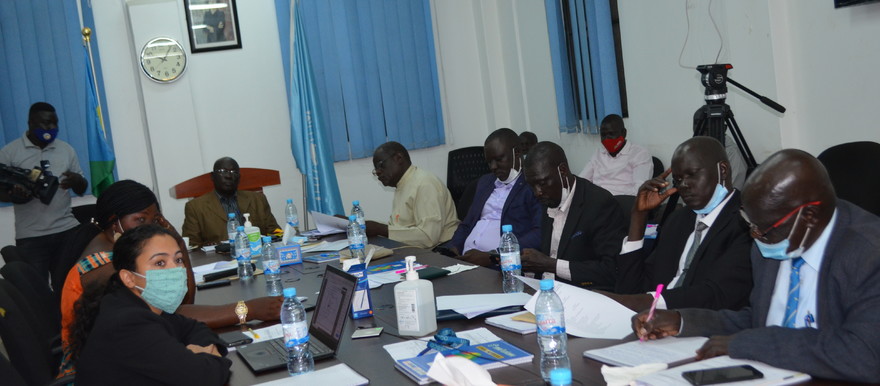South Sudan has on Wednesday validated manuals and regulations that will govern the right to access public information.
The manuals included the Access to Information Regulation 2020, Access to Information Forms, and the Right to Access to Information (RTI) manuals for civil society and public officials.
The chairperson of the Access to Information Commission which was established in 2013, Moyiga Nduru said validation of the training materials will enable the commission to inform the public that they have the right to access information.
“This workshop is about validation of training manuals and regulations. These are very important documents. So I wanted to tell you that we shall start training the information officers from both the public and the private sector all over after the validation of these three training manuals,” he said.
UNESCO country representative Mr. Tap Pant says UNESCO will work with the government of South Sudan to ensure the implementation of the legal framework to access information.
“Allow me to congratulate the commission for access to information for this milestone that started. UNESCO is fully committed to working with the government of South Sudan to implement legal frameworks that are in place. I want to commend the government of South Sudan for the work so far in having the access to information,” he said.
Chaplain Kara a professor at the University of Juba says access to information is vital for the daily life of every individual.
“This workshop is very important because access to information is a human right. So everyone person lives his daily or her daily life with access to information. So, access to information is food for the brain. If you are hungry you need to eat something. So, if you don’t have information your brain is hungry. So, information is food for the brain and is very important for the daily lives of every individual to enable them to make correct decisions in their daily lives," he said.
The validation workshop was convened and attended by representatives of members of media institutions, human rights lawyers, UNMISS, the ministry of information, and the access to information commission.
The just validated documents will be added into the South Sudan constitution.




